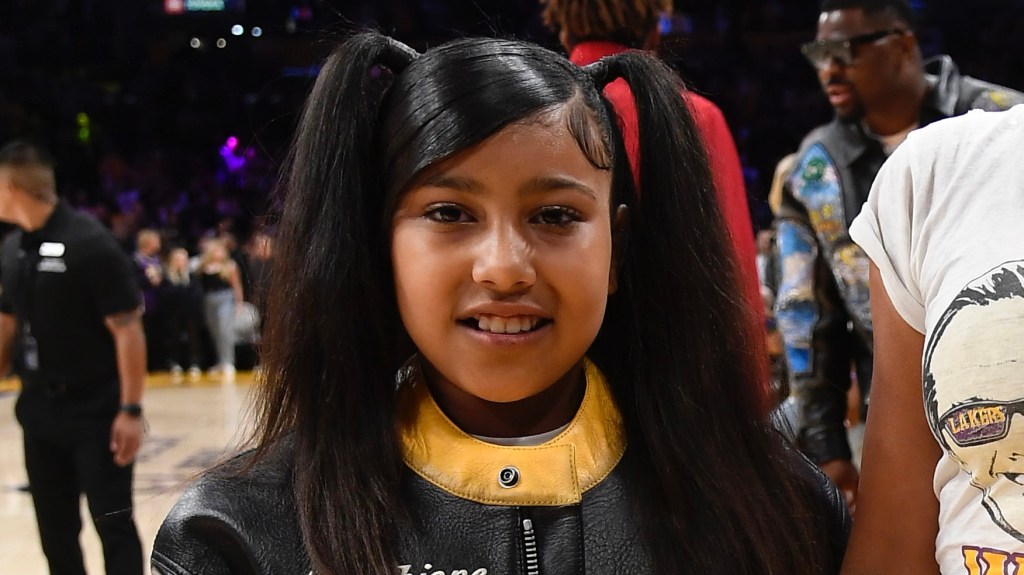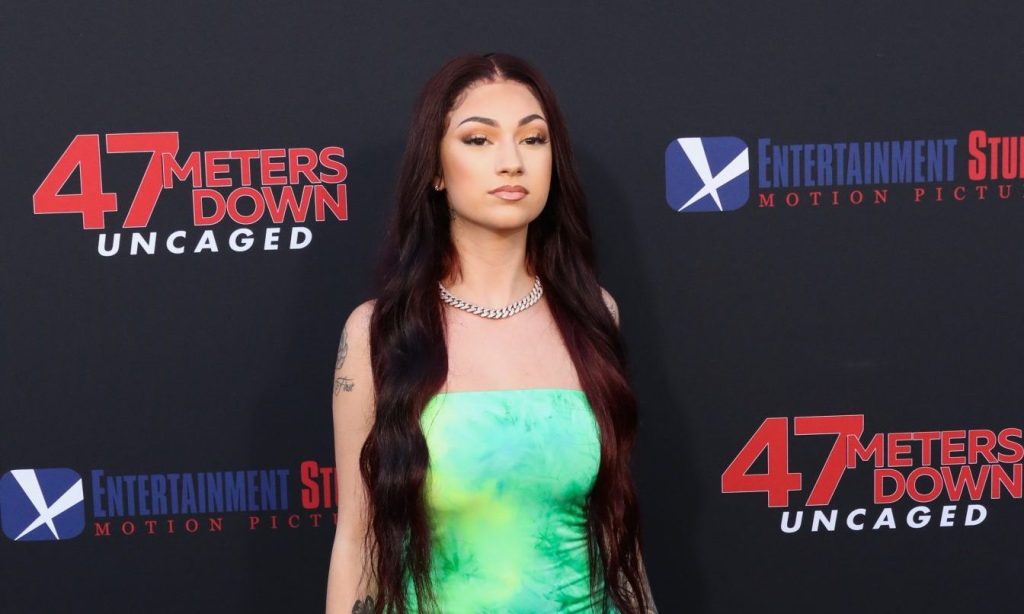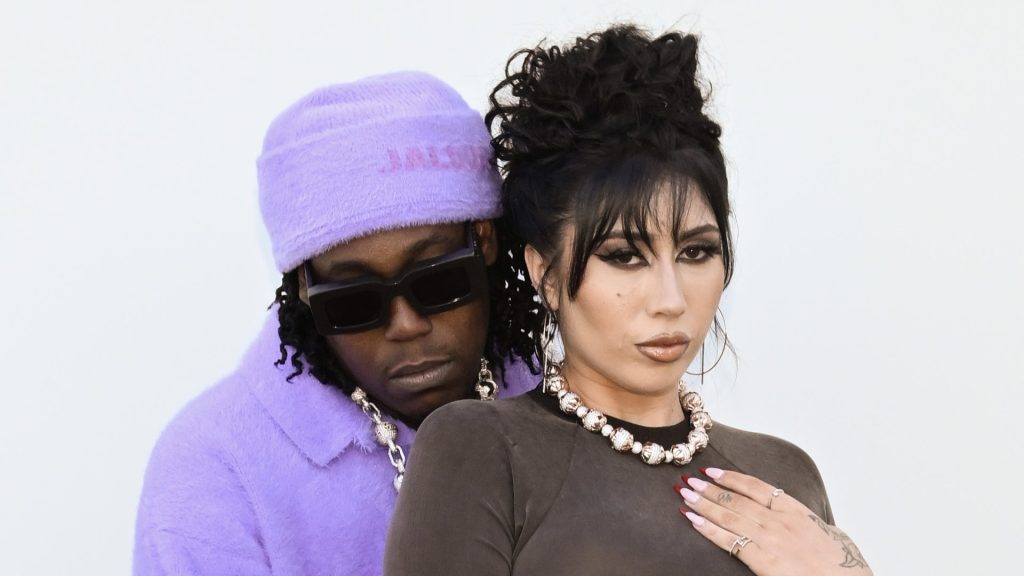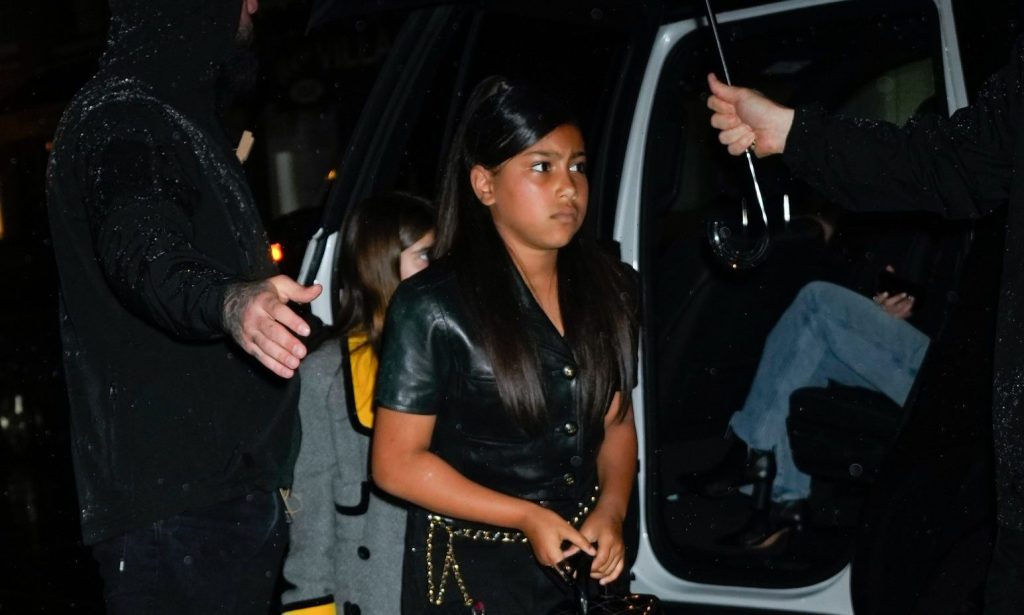
Vic Mensa, a Chicago native, activist and hip hop artist, recently stepped into The Shade Room with Taylor Bickham to reflect on his journey to sobriety after celebrating two years of being sober, he details his firsthand account traveling through Palestine some years ago, his role on the hit television series, ‘The Chi’, new music, his thoughts on the colorism conversation and more.
Vic Mensa Opens Up About His Sobriety Journey & How It’s Shaped Him In Friendships And Relationships
Taylor Bickham: Let’s talk about, you’ve been very vocal about your sobriety journey. And I would love to know, what was that defining moment for you to feel like it was time to get sober.
Vic Mensa: Yeah, I got in a bad car crash about two years ago. And there was things in a car and could have been a terrible situation, you know. I had been praying, recently, started to practice Islam and went to the mosque, very briefly before that, basically praying for God to get me out of whatever situations I had going on at that time. So when I got in this bad crash, and I just was so lucky to be alright, and to not really have to pay the consequences in that moment. I had acknowledged that was a sign from God and to just get serious about my life. I strongly believe in the power of faith, and I also look at what people might call coincidences as being the universe or the creator’s way of communicating with us. So in that moment, it was absolutely necessary for me to take note of that sign, and, you know, just change the way that I’m moving through the world. And going sober, I think has given me a lot of perspective on myself a lot of perspective on my behavior, and ultimately, like a completely different sense of focus and purpose. But yeah, you know, so like, how do I make every decision in alignment with the person I want to be, a lot of us are like, I’m righteous and on point on Friday, but when the weekend come around, you know, man, and that’s okay. But, for me, I guess, to acknowledge massive blessings from God has pushed me to a point where I want to live every step in alignment with my values, you know. I mean, I don’t want to be values driven, Monday through Friday, and then Saturday, Sunday, do some sh*t to completely unravel everything I work towards. I think a lot of the controversy, drama issues that I’ve been involved in, they’ve often been very counteractive of the platforms and the stances that I take, and that I put it all on the line standing for what’s right. And then the Gemini in me will go and do something that’s directly in opposition to what I stand for. I just realized that in order to have integrity, that means I have to integrate the pieces of myself two parts of my personality and find a way to let them all live as one human being and one man.
Taylor: You put it in your post [that] you want to handle your emotions head on now. And I think as men, that’s something that is shied away from. It’s like, I’m gonna suck it up. I’m gonna keep it in. I’m gonna keep it pushing. So, what are your outlets like how do you [cope]? They say you meditate, like what other outlets do you have to kind of keep you aligned.
Vic: I think music is a primary outlet of mine, definitely. There’s so much creativity in me that I don’t think I need to go find the life experience to express it. I mean, it’s like, so even the music is a primary form of therapy, for me. Meditation is a big part of it. Boxing and combat sports, you know, just fitness in general. But really, I’ve been leaning in on the boxing and that’s like an ill way to release that aggression, and get that energy out in a constructive way, in a skillful way to learn, you know. To use that energy to build skill. You know, something I was thinking about a quote I came across recently that is so critical to me is ‘the driving force behind spiritual evolution is personal problems’. That was so ill, you know, because it’s like, I have to have gratitude for everything. I’ve faced all of the ups and downs of trials and tribulations because ultimately, they’ve forced me to grow. They forced me to evolve spiritually. They forced me to learn how to use faith on a daily basis, they forced me to bring God into everything I do. I was completely without God before. But after going through so much drama, I realized that I need God to get through this sh*t. You know, and yeah, I think those are my main outlets really is like music, meditation, boxing, spending time with family. Like, I just try to keep it simple at this point.
Taylor: And how has that affected your relationships? Has it strengthened it? Like, whether it be friendships or [with] women.
Vic: I think in my relationship with my girl, that it’s positively affected, you know, she and I started to be together right around the time I went sober. She was actually the one that was planning on going sober for a month, and I got in that car crash right before that month. So I was like, I got to do this with you. And so we went on that, you know, sober month together and I just never stopped. But also like I think it’s helped me a lot to be faithful, you know? Cuz cheating sober is crazy. That’s crazy. That’s crazy like to straight consciously… and but that you know and that’s a bit that’s big for me because that that was always a point of misalignment in my life. So that was always a part of misalignment in my life was like you know being this freedom fighters standing for what’s right then in my relationships with women, I mean, I’d be lying all over the place, you know, to the point where like, I did a 12 step program about this sh*t to really learn the, you know, tools to just be honest in a relationship. So being sober, I think helps that a lot. Because although it’s like, you know, in the space, I’m in and who I am, it’s like, it’s always women trying to hit constantly. Yeah, absolutely. You know, man, but like, you know, I’m like, Man, that’s not where I’m at with it. I’m not, I’m not doing that. And the fact that I’m in a clear state of mind, all the time makes it so there’s never a moment when I’m like, oh, yeah, let me just go get to doing that, you know. And I think other relationships, like, it’s cool, because it brings different relationships into your life, you know, like, the people that I find myself connecting with behind and, you know, my lifestyle choices in that way, tend to be like really dope people, you know, saying that, for whatever reason, I’ve also found themselves on a, like, a path of clarity and, you know, be it sobriety or be a meditation or be like plant medicine. I think that where you are spiritually, you attract people in that space to, you know, and some people won’t even resonate with where you’re at, you know, if I’m on this way, then somebody who’s spending all their time going to the club, and, you know, trying to drink their problems away. I’m not even gonna end up spending time with you, because I’m not even operating in that space. So eventually, you gone realize to stop hitting me up.
Taylor: I was gonna ask you that because of the culture that the entertainment industry kind of like facilitates. Have you had to cut off people? Not because you don’t really still care about them, but just because your lifestyles don’t match.
Vic: You know, I ain’t really had to cut anybody off. Not that I [can] think of I mean, occasionally, like, you know, people have backdoored me… people have known very well. So, in those moments, yeah. But behind just being on on a sober wave, like, I haven’t had to cut anybody off. Because I think it just happens naturally. And I’m also not a person that is like, oh, don’t do that around me, you know, because what I’m doing in my life is rooted in my own discipline, and my actions have to be a result of my own convictions. So I’m not concerned with what other people are doing around me, because that doesn’t tempt me, you know, stake my foundation because I believe it. I mean, it. Yeah. I mean, if I wasn’t certain of myself and what I’m doing, maybe I would be a different way. But since I’m sure of myself, then I have no qualms about somebody else having fun. But, you know what it’s something was something I was really thinking about, is like, the difference between fun and joy. I think a lot of the things I’ve done in my life that have been self destructive, have been in the pursuit of fun. You know, from the drugs to the women and the violence. Always was fun to me. But it was antithetical to my joy. So, maybe if I focus now and sacrifice fun, I can build more joy as a whole.
Taylor: That’s beautiful. I love that. Have you communicated to your village on things to look out for so they can help you if you find yourself to struggle? Or do you feel like, I’m not going to struggle, so I’m not worried about it?
Vic: Well, you know, I think we all struggle, you know, that’s a part of life, you know, what they say? Pain in life is inevitable, but suffering is optional, you know, I’m definitely not holding myself to some standard of perfection that I never make mistakes, like, I’m a human being, but I think I have not communicated anything to my people to be like, you know, if you see me like this… I’ve been in a pretty solid state, you know, and been in a place of a lot of clarity, if anything, I’m like, leaning on my people to organize, but to stay on my path, that’s really gotta be me. You know what I mean?
Vic Mensa Champions That Black Men & Women Need Therapy
Taylor Bickham: I do want to talk to you a little bit about black mental health and black men mental health in general, because that kind of goes into the whole conversation we’re having anyway. It’s very stigmatized, still, you know, even with everyone talking about mental health and people coming forward, like, it’s very stigmatized in a lot of communities. What advice would you give to someone? Because a lot feel like they don’t need it.
Vic Mensa: They do. And, they really do. You know, and interestingly enough, man, I feel like I’ve found that it’s very stigmatized amongst black women, too, you know, and, like black women in my family that I’ve tried to get to open up to therapy, and are just really resistant, you know, men and women. And I think that it has obvious historical precedent. And the stereotype of crazy black man or woman has been weaponized against us for so long, and used to discredit our opinions, tear apart our families, etc. So I understand where it comes from, but at the same time, I don’t think anyone should be resistant of therapy. Because, you know, it’s like exercise. You know, a lot of people are resistant of exercise, though they think it’s too difficult or it’s not for them. But ultimately, man, that’s for every human being. And therapy is such a beautiful thing. Because here’s this person whose sole role is to help you process your emotions and the events of your life. And there’s confidentiality, you know, how many people are dealing with someone in their life or their family who unloads all their sh*t on them, you know, just unloads all the things on them. And now you walking around with a f— up attitude had a bad day because this person and your family doesn’t have an outlet to speak about what’s going on with them emotionally. And that’s what therapy is for therapy is to have someone whose role is to see from the outside looking in and give you strategies and tools to help deal with your struggles, the struggle is inevitable, everybody’s gonna struggle with things, but at the same time, how can you continue to do the same thing and expect different results? You know, you’re dealing with struggle, and you’re resistant to all the strategies, all the healthy strategies for coping with and processing that you’re not only harming yourself, you’re harming your family, the people around you who have to deal with these unprocessed emotions. And I don’t think it’s worth it. I think that like, perhaps if we have more prominent black people speak about embracing therapy, I think that’s started to change the narrative. But old habits die hard, you know, and black people are generally very resistant of accepting mental health or embracing treatment as being a viable strategy. But we need it though, the f—- thing is like, we as black people, black men, black women, we are experiencing and have experienced an unprecedented amount of trauma. You know, and so many of our decisions and ways of living are completely influenced by trauma, everything, you know, even when you go down to like… it’s funny, when you start to research why certain things we do exist, like, why do black people run away when we laugh? Everything goes to slavery, you know, that was like you ain’t supposed to be fraternizing and laugh and on a plantation, so people would run, it’s like, everything goes to slavery. And when you when you realize that, and you realize, man, we have so much trauma, the way that we beat our kids, you know, the way we as black men have so much aggression towards each other. You know what I mean? The interactions of black women and black men, everything is is influenced by trauma. And we need therapy more than anyone else. You know, they didn’t experience what we experienced coming here. Human emotion is, you know, across the board with all people, but there’s one group of people in this nation that have been subjected to the absolute most. Well, black people and a Native Americans, you know, I mean, like, we really need therapy.
Vic Mensa Reflects On Past Trip To Palestine Following The Global Situation Occurring In Gaza
Taylor Bickham: I do want to talk about what you just recently shared to your story, your Times article… because I feel like a lot of the points you made five years ago are still prevalent today. Is that something that you feel as well?
Vic Mensa: Yeah, definitely. I mean, when I wrote that article, I had just left Palestine, and experienced Palestine and Israel firsthand. So it’s a different, more visceral reality when you see it with your own eyes. And my intention in writing that article was to just share my experiences and show how colonialism and exploitation racism are the same here as they are in Palestine as they are in Africa. You know, wherever there is power, displacing people, and controlling people, there’s going to be a lot of similarity.
Taylor: What are you hoping to see as a change with just the recent news cycle of what’s going on? What are you hoping to see change or grow between the two?
Vic: Obviously, peace is, ultimately, what we all want as human beings. But that’s very difficult when you have an extremely powerful machine that has settled one group of people on top of another, you know, with the intention of erasing them. You know, I’m saying it’s very similar to the Native American situation in America, except the Native Americans were largely exterminated. You know, one of the differences is that the Palestinian people are still alive. You know, I mean, so I think it’s like, important to note that this is an issue of nuance, like, I don’t celebrate the death of anyone, and I have people that I love, who have family in Israel as well. You know, I mean, and I don’t want people to simplify, and try to say that I’m okay with or I approve of the death of the people in Israel. That’s not the case. But as an African person, and as a member of an oppressed group, I have to be able to clearly draw the line between the oppressed and the oppressors. It’s like, you know, that’s my experience with my history. So it’s got to be the truth that I hold everybody to.
Vic Mensa Explains The Difference Between Vic and Victor
Taylor Bickham: You just released a project called ‘Victor’. And, not to dig too much into the project, because obviously, you want people to check it out. But tell me the difference between Vic versus Victor, and how Vic handles situations versus how Victor handles situations?
Vic Mensa: Hmmmm, you know, I don’t really make a distinction between Vic and Victor. I mean, my mom calls me Victor, like, some people that have known me a long time, call me Victor. But ultimately, I called the album that because it’s a very personal album. And also, I was having a meditation on my name one day, and on the power of names, and I think when you name a child something, and this word or group of letters is repeated to them millions of times throughout their life. I think it like can leave an imprint on the psyche. And I realized, you know, my name Victor to be a winner, you know, I mean, having experienced so much struggle, so much up and down, so many battles, that ultimately, it’s my destiny to overcome those things. And you can’t win without a fight, you know, there has to be adversity for you to even win in the first place. So I named it Victor in recognition of that being, like, despite all of the ups and downs, I was named to be victorious.
Vic Opens Up About His Aunt’s Skin Bleaching & How We Can Overcome Colorism As A Culture
Taylor Bickham: I watched a video where you talked a bit about the history of skin bleaching and how it affected your aunt, specifically. Because I believe she got his skin cancer from it, right? I don’t want to talk about the skin bleaching, specifically, but I want to use that as a segue into the colorism conversation overall. How do you feel as a community we can move past colorism altogether?
Vic Mensa: I Yeah, man… that one got us in a chokehold, globally. I think it helps to view colorism from historic lense, and to view ourselves not in a vacuum and not in a silo of America, but as an African people, globally, you know, there’s so much division and misunderstanding between black people of the planet, because that’s how they did it, you know, to make us fight each other and not pay so much attention to what they are currently and have done to us. But, you know, if human beings have been in existence for 10s, of 1000s of years, and we, as black people in America have been here for 500 years… we can’t erase 10s of 1000s of years of being African people, you know, and we have a very specific set of circumstances here in America, that have influenced and created our culture to be unlike any other, you know, similar, but so powerful, you know, specifically as black Americans. But we also got to have context on things like the one-drop-rule, and all the brainwashing that’s gone into making us hate each other and hate ourselves, you know, if you’re light, then you’re in a house, if you’re dark, then you’re in a field. So we look at each other with disdain and resentment. So we don’t pay attention to who owns the plantation. You know what I’m saying? I feel like African people have always been all shade and colors. Ethiopians look different from people from Ghana look different from people from North Africa, and Tunisia, and Egypt look different from South Africa. But, you know, we’re all oppressed by the same by the same people. And in a situation with my aunt was so metaphoric, because through Western white supremacist brainwashing, she must have felt that the way she was born was not enough, not beautiful, not valuable. Because, you know, that’s what they tell us as African people. And so as a dark skinned woman, you may want to be lighter skinned, if, you know, you’re living inside of that propaganda. But the metaphor in it was that by bleaching your skin to attempt some unattainable whiteness, she actually damaged or removed the melanin that was protecting her from the sun. You know what I mean, like, how metaphoric is that to realize that melanin is what’s protecting us from the sun? Like, we take that for granted. We take for granted that we don’t gotta be putting on sunblock, like, we take that straight for granted. But that melanin is very directly and substantially enabling us to survive life on this planet. So we have to honor that in that way. And be like, Man, this melanin is, this is this is integral. I couldn’t be alive without this. And, you know, as far as light versus dark, I think you just got to look at who’s pulling the strings on the puppet, though.
Taylor: Do you think that there’s some times where something is labeled as colorism but it’s really ignorance, or it’s really, like, they didn’t mean it like that?
Vic: Man, I think it’s all ignorance. You know what I’m saying? And in a lot of situations, I think it’s a more constructive path to take to just try to educate, you know, because, we’ve been brainwashed in so many ways. You know, there’ll be times when I see hip-hop artists, you know, say something disparaging about black women, and like, it’ll be wack but you can also tell that this person is just regurgitating the shit that they learned in the hood, you know, not being particularly educated. And a lot of the colorism is like deeply ingrained into our psyche and into, like, our families, and the ways we communicate with each other the ways we value different children in the same family, how many times have you heard of that? You know, the darker kid being treated a certain way. And also think like, it’s all, all of us individually. If you know better, you do better so, so all of us individually to hold space for that, and recognize that, like, I do have a privilege as a light skinned person, you know, as a light skinned man, there’s privilege inherent in that, and the statistics are going to show you that I’m less likely to be the victim of racial violence. I’m not absolved from the possibility by any means. But you know, somebody has darker skin than me is statistically more likely to be arrested, to be profiled, to be the victim of police violence. And for me to know that [and] keep that in mind. And, you know, move with intention with with that information. If you have the information, I think you have a responsibility to act upon it.
Vic Reflects On His Role In ‘The Chi’ & How Him And His Character Are Similar
Taylor Bickham: Well, I’m gonna switch gears because we ain’t talked about ‘The Chi’, and I can’t let you go without talking about The Chi. So, you’re Jamal on the show. Tell me how surreal it is to play a role that is based off of literally the environment that you grew up in? Like, is there any similarities in the characters where you’re like, Man, this reminds me of my homeboy? How surreal is it going through that?
Vic Mensa: You know, that’s been interesting, because where my character is in The Chi and life is very similar to where I’m at right now.
Taylor: Right.
Vic: I don’t think Lena [Waithe] knew these things about me, though, I don’t think we had conversation in that direction. I think it just kind of played out like that. And so, even that, has made it, like, very natural to act on the show in the season, and just made it a lot of fun. You know, I mean, I’ve already been, like, studying the craft of acting and taking classes and getting different coaches, and, you know, living inside character. Being in Chicago and doing a Chicago thing, obviously, that is an added dimension of ease. Because, you know, the accent and the mannerisms and slang, like, those things are how I am in real life. And, yeah, there’s just a lot of similarity between the character and myself, you know, even like, having a younger sister, and having a kind of strange relationship with her. That’s also my reality. So, I think that brought a lot of emotion to my role this season. Because, you know, I’m like, Man, I wish I could speak to my younger sister. You know what I mean? And so that brought me to tears a lot of times, and my sister on the show would be like, “why are you crying?” And, I’m like, Man, I miss my little sister.
Taylor: It hit home.
Vic: You know, it was just hitting…. It was hitting home for real and, and to be at home and do it at home. It felt very natural.
Taylor: Yeah, I honestly thought that was intentional. I thought it was intentional that the character was very closely based off of your transition. It just seemed like it was intentional, but the fact that you said it’s not is crazy.
Vic: Yeah, it wasn’t even, you know, wasn’t even like that.
Taylor: I mean, it is a great role for you. If you could add a role to the Chi and cast it with anyone from Chicago, what would the role be and who would play it?
Vic: Damn, add a role to the Chi… anybody can play it… Man… I think I would add Chief Keef because I saw Keef and his guys the other day and they mentioned something about the Chi. Yo, I think Keef would be an amazing actor. You know, because he’s, like, very stoic. You know, his disposition, I think would just like lend itself to acting, for real. And, I would make Chief Keef, like, I would make him like the main gangster, you know? Because it would be so believable, you know, I think it would be ill for Keith to be… like, Douda is the f—- leader of the gang and sh*t. And, he’s kind of a unique gang leader. I’ve never met a gang leader like Douda, you know? Like, if Keef was like the young leader of the mob out there… it just lends a lot of credibility. I think it would be very believable.
















